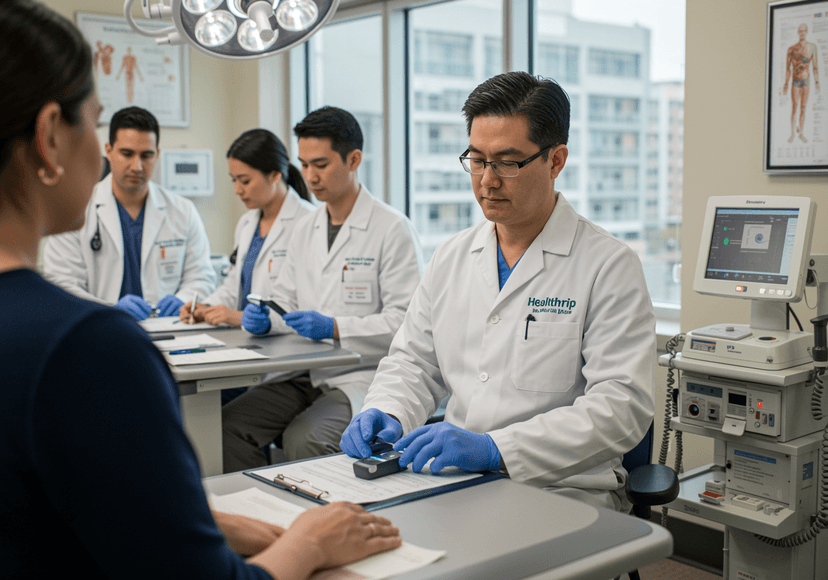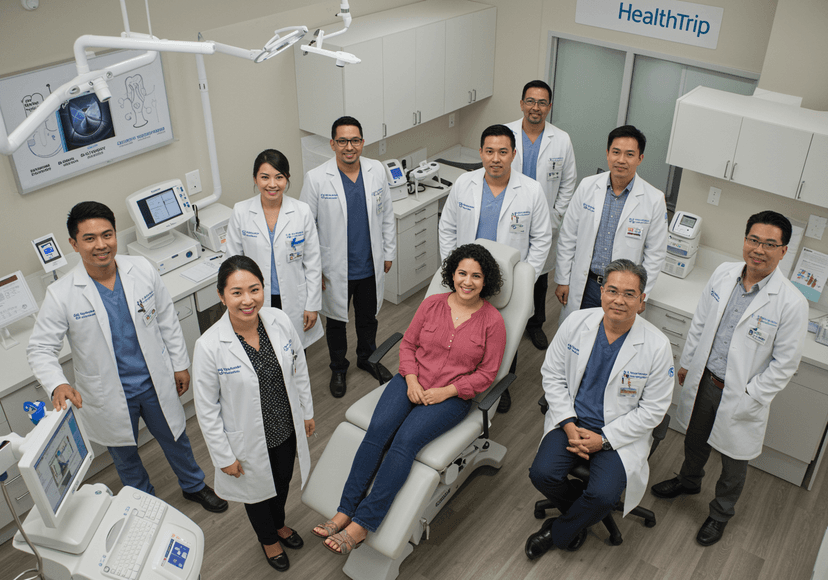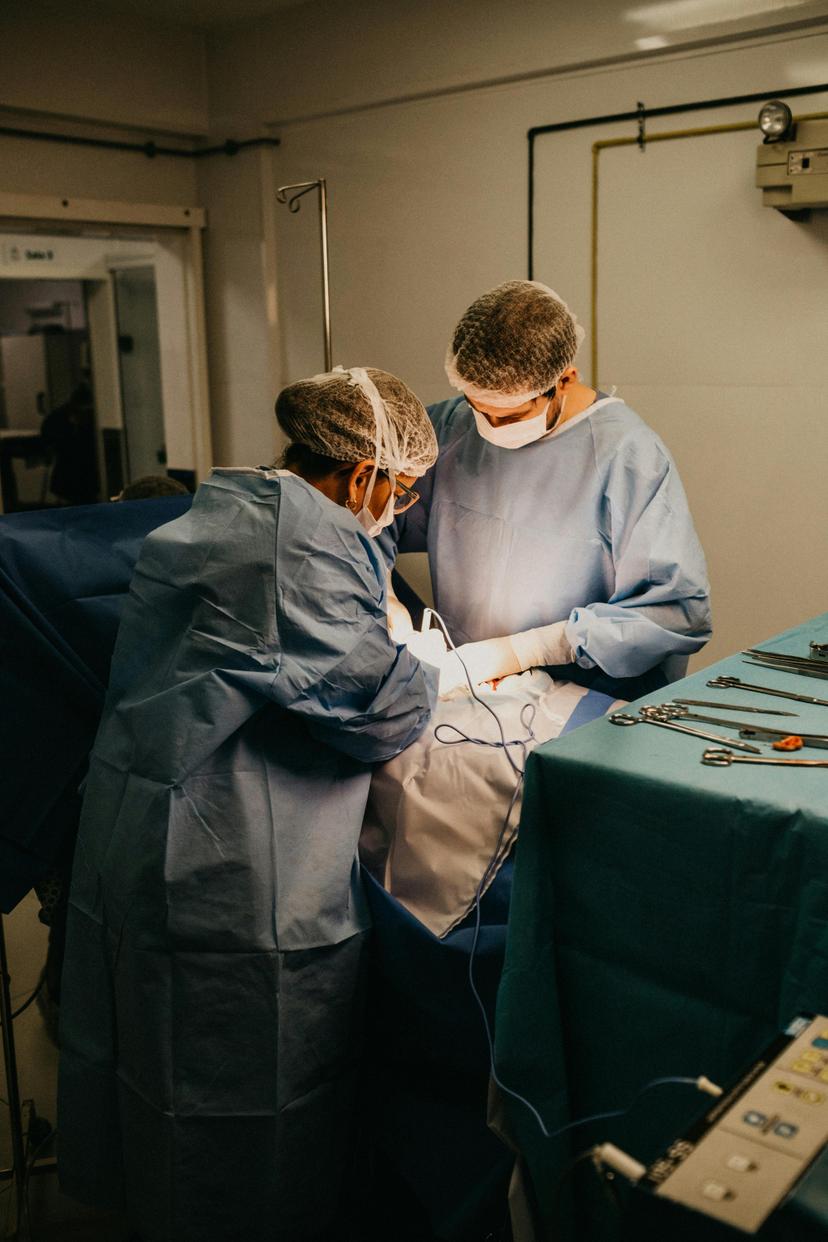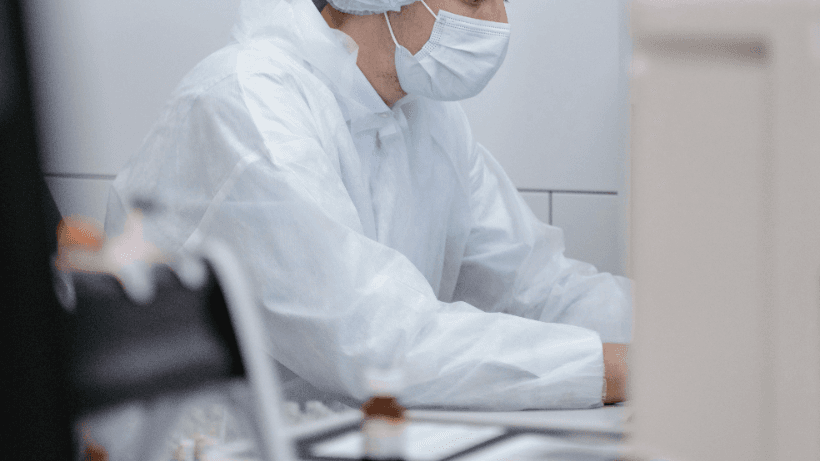
Gastric Bypass Surgery and Type 2 Diabetes : What You Need to know
04 May, 2023
 Obaidullah Junaid
Obaidullah JunaidDiabetes is a severe health issue that affects millions of individuals throughout the world. It can lead to a number of serious health problems, including type 2 diabetes. Type 2 diabetes is a chronic condition that affects the way your body uses glucose, which is the main source of energy for your body. If left untreated, type 2 diabetes can lead to a number of serious health problems, including heart disease, kidney disease, and nerve damage.
Gastric bypass surgery is a type of weight loss surgery that can help people lose weight and improve their overall health. In this procedure, the surgeon creates a small stomach pouch and connects it directly to the small intestine. This limits the amount of food that can be eaten at one time and reduces the absorption of calories from food.
Most popular procedures in India
In recent years, gastric bypass surgery has been shown to be an effective treatment for type 2 diabetes in obese patients. In fact, studies have shown that gastric bypass surgery can lead to remission of type 2 diabetes in up to 80% of patients.
Here's what you need to know about gastric bypass surgery and type 2 diabetes:
Wellness Treatments
Give yourself the time to relax
Lowest Prices Guaranteed!

Lowest Prices Guaranteed!
How Gastric Bypass Surgery Works
Gastric bypass surgery works by shrinking the stomach and redirecting the small intestine to the colon. The surgeon builds a tiny pouch at the top of the gastrointestinal tract and links it directly to the small intestine during the surgery. This skips the remainder of the stomach and a section of the tiny intestinal tract, limiting the number of grams of food that can be ingested and decreasing calorie absorption from meals.
Gastric bypass surgery is typically performed using laparoscopic surgery, which is a minimally invasive surgical technique that involves making small incisions in the abdomen. This results in less pain and scarring and a faster recovery time.
The Benefits of Gastric Bypass Surgery for Type 2 Diabetes
Gastric bypass surgery has been shown to be an effective treatment for type 2 diabetes in obese patients. In fact, studies have shown that gastric bypass surgery can lead to remission of type 2 diabetes in up to 80% of patients.
The exact reasons for this are not fully understood, but there are several factors that may contribute to the improvement in blood sugar control after gastric bypass surgery:
- Weight loss: Gastric bypass surgery results in significant weight loss, which can help improve insulin resistance and blood sugar control.
- Changes in gut hormones: Gastric bypass surgery can alter the production of gut hormones, which can improve insulin sensitivity and blood sugar control.
- Changes in gut microbiota: Gastric bypass surgery can also alter the composition of gut microbiota, which may also contribute to improved blood sugar control.
Studies have also shown that gastric bypass surgery can lead to other health benefits in addition to improved blood sugar control, including:
- Improved cardiovascular health: Gastric bypass surgery can help reduce the risk of heart disease and stroke.
- Improved mental health: Gastric bypass surgery can lead to improved mental health, including reduced symptoms of depression and anxiety.
- Improved quality of life: Gastric bypass surgery can improve overall quality of life by reducing the burden of obesity-related health problems.
Who is a Candidate for Gastric Bypass Surgery?
People with a BMI of 40 or higher, or a BMI of 35 or higher with at least one insulin resistance-related health issue, such as type 2 diabetes, high blood pressure, or sleep apnea, are often suggested for gastric bypass surgery.
Before undergoing gastric bypass surgery, patients will undergo a comprehensive evaluation to determine if they are a good candidate for the procedure. This will typically include a physical exam, blood tests, imaging studies, and consultations with a surgeon, dietitian, and other healthcare professionals.
Risks and Complications of Gastric Bypass Surgery
Like all surgeries, gastric bypass surgery carries some risks and potential complications. These can include:
- Bleeding: During the surgery, there is a risk of bleeding from the incisions or from the stapled or sutured areas of the stomach.
- Infection: There is a risk of infection at the incision sites or in the abdomen.
- Blood clots: Surgery increases the risk of blood clots, which can be potentially life-threatening.
- Dumping syndrome: Dumping syndrome occurs when food moves too quickly through the stomach and into the small intestine, causing nausea, vomiting, and diarrhoea.
- Nutritional deficiencies: Gastric bypass surgery can lead to nutritional deficiencies, particularly of iron, calcium, and vitamin B12.
It is important to discuss the risks and potential complications of gastric bypass surgery with your healthcare provider before deciding to undergo the procedure.
Postoperative Care and Lifestyle Changes
- After gastric bypass surgery, patients will need to make significant lifestyle changes to ensure the best possible outcomes. This includes following a strict diet, taking vitamin and mineral supplements, and engaging in regular exercise.
- In the weeks following surgery, patients will be limited to a liquid or pureed diet, and will gradually progress to solid foods over the course of several weeks. Patients will need to avoid high-fat and high-sugar foods, as well as foods that are difficult to digest, such as fibrous fruits and vegetables.
- Patients will also need to take vitamin and mineral supplements for the rest of their lives, as gastric bypass surgery can lead to deficiencies of certain nutrients. This may include iron, calcium, vitamin B12, and vitamin D.
- Engaging in regular exercise is also important after gastric bypass surgery. Exercise can help promote weight loss, improve cardiovascular health, and reduce the risk of developing type 2 diabetes or other health problems.
Conclusion
Gastric bypass surgery can be an effective treatment for type 2 diabetes in obese patients. The procedure works by reducing the size of the stomach and rerouting the small intestine, which limits the amount of food that can be eaten and reduces the absorption of calories from food.
Studies have shown that gastric bypass surgery can lead to remission of type 2 diabetes in up to 80% of patients, as well as other health benefits such as improved cardiovascular health and mental health.
However, gastric bypass surgery is not without risks and potential complications, and patients will need to make significant lifestyle changes after the procedure to ensure the best possible outcomes. It is important to discuss the risks and benefits of gastric bypass surgery with your healthcare provider before deciding to undergo the procedure.
Most popular wellness packages
Related Blogs

Healthtrip: Top Diabetologists in Medina for Diabetes Management
Find expert diabetologists in Medina through Healthtrip for comprehensive Type

Healthtrip: Top Diabetologists in Medina for Diabetes Management
Find expert diabetologists in Medina through Healthtrip for comprehensive Type

Healthtrip: Your Guide to Weight Loss Surgery Tourism
Discover safe, effective, and affordable weight loss surgery options abroad

Laparoscopic Bariatric Surgery: A New Lease on Life
Discover the benefits of laparoscopic bariatric surgery, a minimally invasive

Laparoscopic Gastric Bypass: A Weight Loss Solution
Discover the benefits of laparoscopic gastric bypass, a minimally invasive

Top Hospitals for Bariatric Surgery in Thailand
Finding reliable hospitals for bariatric surgery in Thailand can be










